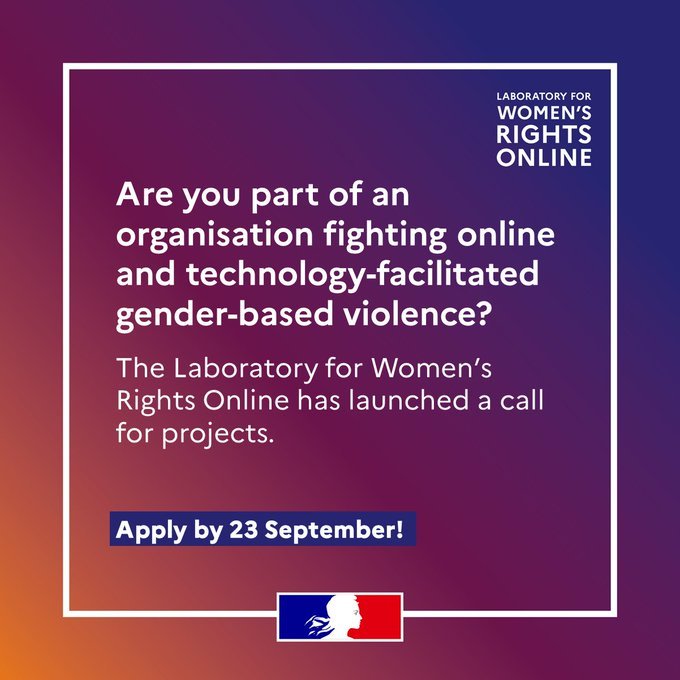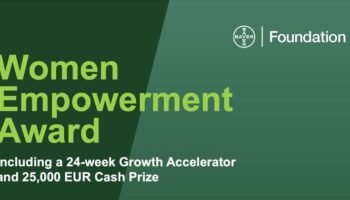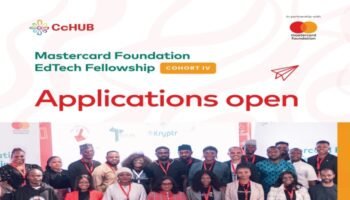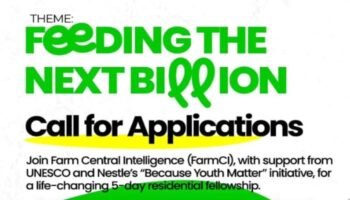Are you a part of organization fighting online and technology- facilitated gender-based violence? The Laboratory for Women’s Rights Online has launched a call for projects.
Launched on International Women’s Day on 8 March 2024, the Laboratory for Women’s Rights Online is a platform for dialogue and an incubator for projects which aims to fight against online and technology-facilitated gender-based violence. The projects chosen in the annual call for projects will receive support from the Laboratory’s members and funding from the Ministry for Europe and Foreign Affairs, which ensures the Laboratory’s Secretariat.
This multi-party initiative, announced at the 78th session of the United Nations General Assembly, brings together many stakeholders: States, international organizations, regulatory authorities, civil society organizations, private platforms, private companies, activists, researchers and experts specialized in gender in the digital realm.
Laboratory for Women’s Rights Online Program Objectives
- The program aims to respond to online and technology-facilitated gender-based violence through a coordinated approach. Its specific objectives include the creation of a coordination space to bring together various actors committed to women’s rights online in order to share good practices and experiences, as well as supporting initiatives aimed at the development of technical solutions, concrete projects, and the production of research on online and technology-facilitated gender-based violence.
- The overall objective of this call for projects is: Supporting concrete initiatives aimed at developing technical and technological solutions, and/or producing knowledge through research projects relating to online violence based on gender and facilitated by technology.
- The specific objectives of this call for projects are:
- Specific Objective 1: Incubate and support technical and technological solutions to combat online and technology-facilitated gender-based violence.
- Specific Objective 2: Incubate and support concrete and research projects aimed at preventing and combating online and technology-facilitated gender-based violence.
Laboratory for Women’s Rights Online Program Sectors or Themes
Actions funded under this call for proposals must contribute to equality between women and men (OECD CAD 2 marker) and to one or more of the following themes covered by the Laboratory:
Theme 1: Combating gender-based violence online and facilitated by technology
- According to UN Women, women are 27 times more likely than men to be harassed online. On a daily basis, they suffer sexist insults, online harassment, non-consensual disclosure of intimate content (revenge porn), photomontages of a sexual nature generated by AI (deepfake porn), etc.
- With priority given to projects relating to:
- The non-consensual distribution and exploitation of intimate content (revenge porn), or
- Campaigns of gender-based violence online and facilitated by technology against women exercising public activity (women in politics, activists, artists, content creators, etc.).
Theme 2: Risks related to emerging technologies, algorithms and moderation
- Emerging technologies, such as artificial intelligence, are at the heart of gender and women’s rights risks online. This is the case of sexual photomontages generated by AI of people without their consent, which today represent 96% of online deepfake generated by AI. Moreover, algorithms and platform moderation can be vectors of gender inequalities and the viral dissemination of hateful content.
- With priority given to projects relating to:
- Artificial intelligence, either 1) in the fight against gender-based violence facilitated by AI (including the creation and non-consensual dissemination of deepfakes of a sexual nature), or 2) projects developed with AI in one of the 4 themes or Algorithmic bias and content moderation.
Theme 3: Prevention and digital education
- Digital education is a tool for training in the healthy use of this space and in online citizenship which, approached through the prism of gender equality, makes it possible to combat discrimination and gender-based violence online and promote the inclusion of girls in STEM and ICT environments.
- With priority given to projects relating to:
- Prevention and awareness of gender-based violence online through healthy and responsible use of the Internet and digital technology, which can both 1) encourage online citizenship, and 2) raise awareness among victims and witnesses of gender-based violence online and tools to protect and defend yourself or
- The inclusion of girls in safe digital environments, with equal opportunities.
Theme 4: Research on masculinist content and networks
- The objective will be to support the production of knowledge by conducting research on misogynistic, virilist and masculinist content and networks online (also called men’s movements, the manosphere or even incelosphere), contributing to the overall understanding of the subject. and its definition, the origins of these contents, the emergence, development and structuring of these movements. The research projects supported will be able to help identify the links between the different forms of online radicalism, understand the role that online masculinist networks play in the anti-rights movement, and thus develop data and tools to name, understand and raise awareness about the subject.
- With priority given to projects relating to:
- understanding masculinist networks (influential misogynistic content and content creators) promoting male domination, questioning the rights of women and girls, and inciting misogyny and gender-based violence online and offline.
- online masculinist movements, networks and content, and their possible proximity to other extremist, terrorist and supremacist networks, as well as their role in anti-rights movements around the world.
Laboratory for Women’s Rights Online Program Funding Information
- The indicative total amount made available under this call for projects is 250,000 EUR.
- Grant amounts : Any request for a grant under this call for projects must lay between the following minimum and maximum amounts:
- minimum amount: EUR 40,000
- maximum amount: EUR 60,000
Duration
- The planned initial duration of a project may not exceed 11 months.
Laboratory for Women’s Rights Online Program Project Types
Types of project able to benefit from financing under this call for projects
- Capacity building
- Development of technical solutions and technological tools
- Research production
- Production of data, knowledge, information
- Production of content and awareness resources
- Organization of seminars, conferences, workshops, events
- Advocacy and/or community engagement and awareness campaigns
- Production of alternative content (e.g. calls to action, premium videos with testimonials, and calls to action to counter the “bystander-bystander” effect, etc.).
Geographical Coverage
The geographical scope of this call for proposals is global, i.e. applicants established in all countries and actions carried out in all countries are eligible. Applicants established in France are eligible only if the proposed actions are not limited to French territory and are of an international nature.
However, preference may be given:
- Actions carried out in regions and/or countries where women’s rights online are most threatened and/or
- Actions carried out in countries/regions in which this type of activity is under-represented or does not benefit from sufficient support, and/or
- Actions carried out in regions where the accountability of technology companies is limited, and where large technology companies are weakly engaged, with little moderation when it comes to protecting women and girls online, and/ or
- Actions with the long-term objective of being deployed on a global or transnational scale, and/or
- Actions of a regional nature which encourage and lead to the promotion of coordinated responses at the regional level, and/or
Actions that can be replicated in various contexts in partner countries. In this case, the applicant must indicate in his request, what strategy will be deployed in order to duplicate his actions in various contexts.
Eligibility Criteria for Laboratory for Women’s Rights Online Program
Lead applicant(s)
- In order to be able to claim a grant, the lead applicant must meet the following conditions:
- be a legal entity and
- be non-profit and
- belong to one of the following categories: non-governmental organization, civil society organization (association), research actor, private sector actor and
- be established in an eligible State in accordance with the financial instrument used and
- be directly responsible for the preparation and management of the action with the partner(s) and not act as an intermediary and
- have a bank account in the name of the entity and commit to opening an account or sub account to receive grant funds and
- have identification documents for the beneficiary legal person/legal entity (registration certificate or legal recognition document or registration number or similar documents that can prove the existence of the organization) and
- have experience of at least two years in implementing projects, or in managing grants, on one of the themes targeted by this call with funding amounts comparable to the amount requested.
- The lead applicant can act either individually or by forming a consortium with one or more partners. The formation of a consortium is not a mandatory condition under this call.
- If the grant is awarded, the lead applicant becomes the beneficiary identified in the Special Conditions. In this regard, it shall assume full financial liability for implementation of the project in compliance with the conditions of the grant contract. The beneficiary shall be the main point of contact for Expertise France. It shall represent any other partners and acts on their behalf. It shall design and coordinate the implementation of the project.
How To Apply
Click Here to Apply and for more details
Application Deadline: 23 September 2024
Elevate Your Business With Our Expert Services!







